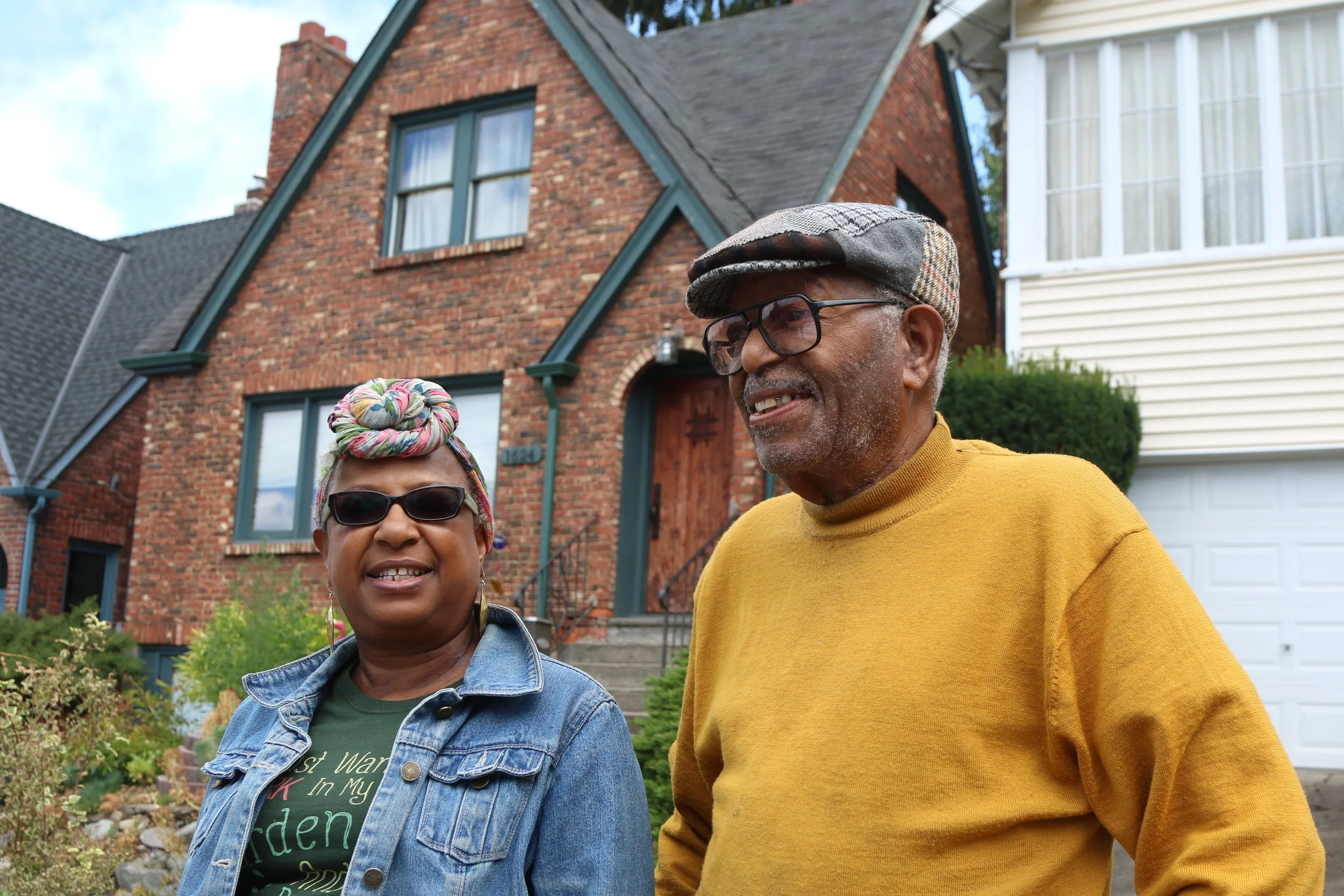Photo by Inye Wokoma
Cecil Beatty moved to Washington state from Oklahoma, during World War II, to work as a machinist in the shipyards. In the early Fifties, he bought a home on 31st and Olive, in the Madrona neighborhood (pictured here). Phyllis is his daughter. She grew up in the house at 31st and Olive, and raised her own children in that house, after marrying John Yasutake.
Cecil Beatty and Phyllis Yasutake
C: Well what they actually did was, the Black Panther Party, they fed a lot of kids in the mornings, breakfast. I mean they fed tons of breakfast food to kids.
P: They shamed the country into starting that breakfast program.
C: In other cities, like Chicago and LA and other places, the police would come raid the places and shoot them while they sleeping in bed and all that sort of stuff. The chief of police wanted to do the same thing here to them, in a house at, 16th and, off of Jefferson and 16th. Wanted to go in and raid them and shoot them all up. But the mayor said no. You're not gonna shoot nobody.
And they would go to lumber yards and get lumber and stuff and fix up people's houses.
P: They did a lot of community stuff. But they would also carry their rifles and march down 34th. They looked sharp too in those berets!
C: There was a lumber yard, I think it's still there, right on Martin Luther King Way, as you...
P: Oh yeah, Dunn Lumber.
C: They'd go in there to buy some lumber, and the owner wouldn't take no money. He was scared. He wouldn't take no money. "Just get what you need. You need some more 2 x 4s?" He'd give them all the lumber they'd need and they'd come out and build up people's homes, old folks homes.
P: They collected money on the street corners for those breakfasts they fed kids. They'd be out there hustling money all the time, hustling, and they cooked at Langston Hughes. It was Langston Hughes Community Center. They would cook breakfast for the kids everyday, and that's what started the breakfast program in the public schools. They shamed the government into feeding poor children in the morning, but they cooked nice breakfasts. They didn't waste that money. That money went to the food. They cooked breakfast and lunch.
And they started a free clinic. Carolyn Downs was the clinic they started. It started on 22nd and Union. Then it moved to 34th and was there for a long time, and then when they remodeled Odessa Brown, they moved in there, so they have Carolyn Downs, Odessa Brown, and the public health all in the same building now.
But yeah, Carolyn Downs, she was one of the Panther Party members. Doctors from the University of Washington volunteered to come work and give people free physicals, check babies, do all that. And then they started the Sickle Cell testing. Cecil was like 2 years old, and it was hard getting information on Sickle Cell. My son had been diagnosed with it, but nobody was talking about it, people told me I wasn't giving him enough red meat and I need to give him extra iron, but he was not anemic because of his diet. It's a genetic disease, but I, people didn't know about it in our community, and the Panthers, the University of Washington doctors trained hundreds of people, gave them kits, and had them go door to door and poke fingers and take blood samples to test them for sickle cell anemia, the trait and the disease, and it really educated the community, because people didn't know about it.


